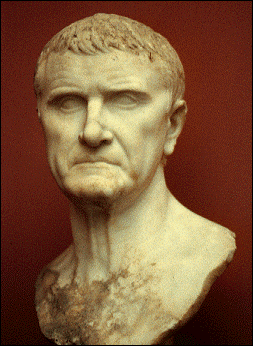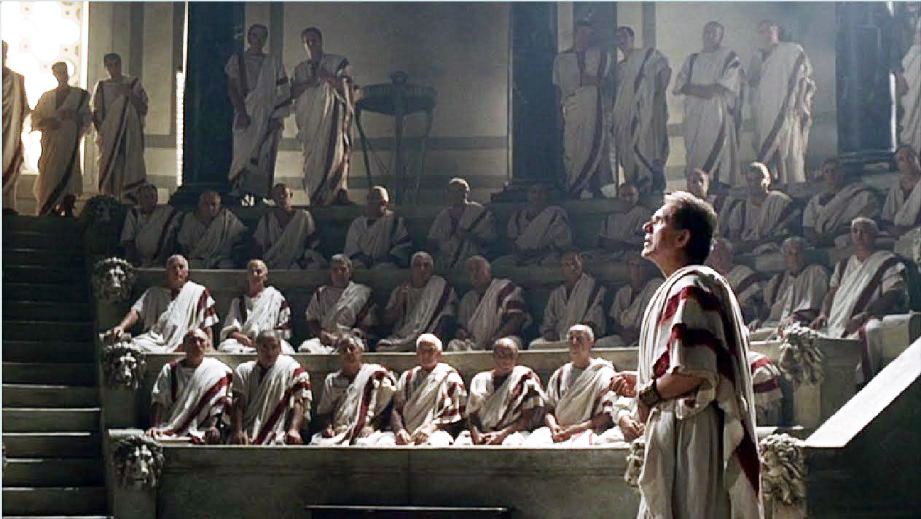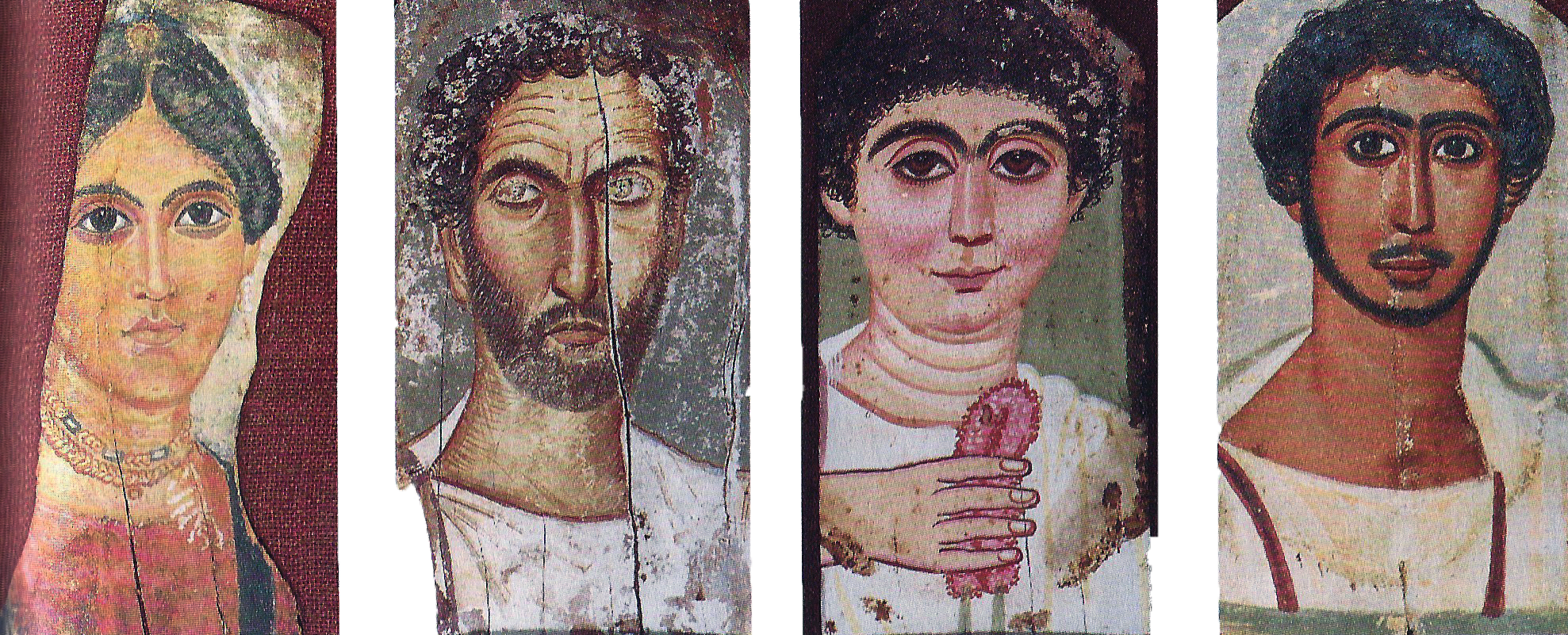by Evropa Soberana
Herod the Great
Augustus (born Gaius Octavius), successor of Julius Caesar at the head of the Roman Empire, appointed Herod, son of Antipater, as king of Judea, and financed his army with Roman money. Herod was a capable, brutal, competent and unscrupulous leader (he practically dispatched his entire family), as well as an excellent warrior, hunter and archer. He expelled the Judean Parthians; protected Jerusalem from pillage, persecuted the bandits and highwaymen and executed the Jews who had supported the Parthian marionette regime, consolidating himself in 37 BCE as king of Judea.
Although Herod is portrayed by history as a ruthless, cruel and selfish king, the reality is that, as hard as it may seem to believe, as a sovereign he was one of the best that this land ever had. Even in 25 BCE he sacrificed important personal wealth to import large quantities of grain from Egypt, with the aim of fighting a famine that was spreading misery in his country.
Despite this and everything he did for Israel, Herod is viewed with antipathy by the Jews, for having been a pro-Roman, pro-Greek sovereign and, above all, because his Jewishness was questioned: Herod descended from his father’s side of Antipater (the one who supported Cassius), who in turn descended from those Idumeans (or Edomites) forced to convert to Judaism when John Hyrcanus, a Hasmonean king, conquered Idumea (or Edom) around 135 BCE.
On the maternal side Herod descended from the Arabs, and the transmission of the Jewish condition is matrilineal. Therefore, although Herod identified himself as a Jew and was considered a Jew by most authorities, the masses of the Jewish people, especially the most orthodox, systematically distrusted the king: especially in view of the opulent and luxurious life he imposed on his court, and held for him a contempt perhaps comparable to the one that the Spaniards of the 16th century felt by the Marranos or Jews converted to Christianity.
For his education and Greco-Roman inclinations, it is more likely that this king felt less Jewish, although he certainly wanted to please Jewry and be an effective sovereign by the prosperity that he brought to them. More rational than his fundamentalist subjects, Herod understood that enraging Rome was not good business.
Herod gave Israel a splendour that it had never known, not even under David or Solomon. He embellished Jerusalem with Hellenistic architecture and sculpture; carried out an ambitious program of public works, and in 19 BCE demolished and rebuilt the very Temple in Jerusalem, considering it too small and mediocre.
This angered the Jews, who hated Herod for being a protégée of the Romans, whom cordially they hated even more. Undoubtedly, the most orthodox sectors of the Jewish quarter were happy with the Temple as it was, and they must have seen as bad its conversion in a more Roman-looking building, especially when the king ordered to decorate the entrance with a golden imperial eagle. (Paradoxically, the Jews would later mourn the destruction of this same Temple at the hands of the Romans.)
Herod was continually involved in conspiracies by his family, much of which, including his own wife and two of his children, was executed at his request. As he was getting old, he developed ulcers and convulsions. He died in 4 BCE, at the age of 69. Eventually it was said that he had ‘ascended to the throne like a fox; ruled like a tiger, and died like a dog’.

The first temple in Jerusalem was a very shabby building, as we have seen in a previous chapter. The second, similar to the first, was built under the protection of the Persian emperor Cyrus the Great in 515 BCE. In the year 19 BCE Herod proposed to renovate and enlarge it, for which he demolished the old temple; erecting, under Roman protection, a much grander one, although it continued to be called ‘Second Temple’ (or Temple of Herod). Although Jewry would abhor Herod, the truth is that he gave the temple a size and splendour that neither Solomon nor Zerubbabel could have imagined.
In that same year of 4 BCE, two Jewish Pharisees called Zadok (or Tsadoq) and Judas the Galilee (also called John of Gamala) called for not paying tribute to Rome. There was a Pharisee uprising, and the rabbis ordered to destroy the ‘idolatrous’ image of the imperial eagle that Herod had placed at the entrance to the Temple in Jerusalem. Herod Archelaus, the son of Herod, and Varus, a Roman commander, stifled the revolt harshly, and had nearly 3,000 Jews crucified.
It is thought that perhaps this first revolt is the origin of the Zealot movement, about which we will talk in the next section. Archelaus, despite having been proclaimed king by his army, did not assume the title until he had presented his respects, in Rome, to Augustus. He was made the Roman client king of Judea, Samaria and Idumea, despite of the sentiments of the Roman Jews, who feared him for the cruelty with which he had repressed the Pharisee uprising.
Archelaus is mentioned in the gospel of Matthew, since Yosef, Miriam and Yeshua—known as Joseph, Mary and Jesus—had escaped to Egypt to avoid the massacre of the innocents. (Supposedly, that year Herod Archelaus ordered the execution of all the firstborn of Bethlehem.) [1]
The Zealots
In the year 6 CE, after the complaints of the Jews, Augustus dismisses Archelaus, sending him to Gaul. Samaria, Judea and Idumea are formally annexed as a province of the Roman Empire, with the name of Judea. The Jews become governed by Roman ‘procurators’: a kind of governors who had to maintain peace, Romanize the area and exercise the fiscal policy of Rome by collecting taxes. They also arrogated to themselves the right to appoint the high priest of their choice.
The Jews hated the puppet kings despite the fact that they imposed order, developed the area and, in short, civilised the country. Paradoxically, from the beginning the Jewish quarter was also highly hostile to the Romans, whose intervention they had practically begged! Now, in addition to the Temple tribute, they also had to pay tribute to Caesar—and, by tradition, money was not something the Jews happily lavished.
That same year, the consul Publius Sulpicius Quirinius arrived in Syria to make a census in the name of Rome with the objective of establishing taxes. Since Judea had been annexed to Syria, Quirinius included the Jews in the census. As a result of this and of the new irruption of European culture in the area, the fundamentalist terrorist movement of the Zealots flourished.
Flavius Josephus considers the Zealots as the fourth Jewish sect together with—from least to greatest religious extremism—the Essenes, the Sadducees and the Pharisees. The Zealots were the most fundamentalists of all: they refused to pay taxes to the Roman Empire. For them, all other Jewish factions were heretical; any Jew who collaborated minimally with the Roman authorities was guilty of treason and should be executed. The armed struggle, the militarization of the Jewish people and the expulsion of the Romans, were the only way to achieve the redemption of Zion. According to the New Testament, the apostle Simon, one of the disciples of Jesus, belonged to this faction (Luke, 6:15).
Among the Zealots the Sicarii stood out, a faction even more fanatized, sectarian and radicalised, so called by the sica: a dagger that could be easily hidden and used to kill their enemies. The Zealots and Sicarii would form the hard core of the Great Jewish Revolt which we will see in another section. They were also the most active element of Judaism of the time, since at that time it is probable that most Jews, although they detested both Greeks and Romans cordially, would simply like to live and enrich themselves in peace, agreeing with whom it was necessary for it.
As it could not be otherwise, the Sicarii and zealots also fought among themselves. There were a total of twenty-four Jewish factions that generally fought against each other, in a very representative frame of what the rabbis called Sinat chinam, that is, ‘groundless hatred’ from Jew to Jew (maybe because hating non-Jews does make sense): an attitude that perhaps has been better caricatured in the movie Life of Brian.
In year 19, with Jewry in process of climbing to acquire influence at Rome itself, Tiberius expelled the Jews from the city, instigated by the Senate. Concerned about the popularity of Judaism among freed slaves, he forbids Jewish rites in the capital of the Empire, considering Jewry ‘a danger to Rome’ and ‘unworthy to remain within the walls of the City of the Legions’ according to Suetonius. That year, on the occasion of a famine in the province of Egypt, Tiberius denies to the Alexandrian Jews grain reserves, since he does not consider them his citizens.

Tiberius set in motion anti-Jewish measures during his reign, during which Jesus was executed.
___________________
[1] Note of the Ed.: An obviously fictional gospel tale, as no Roman historian mentions it, not even the Jew Flavius Josephus.



